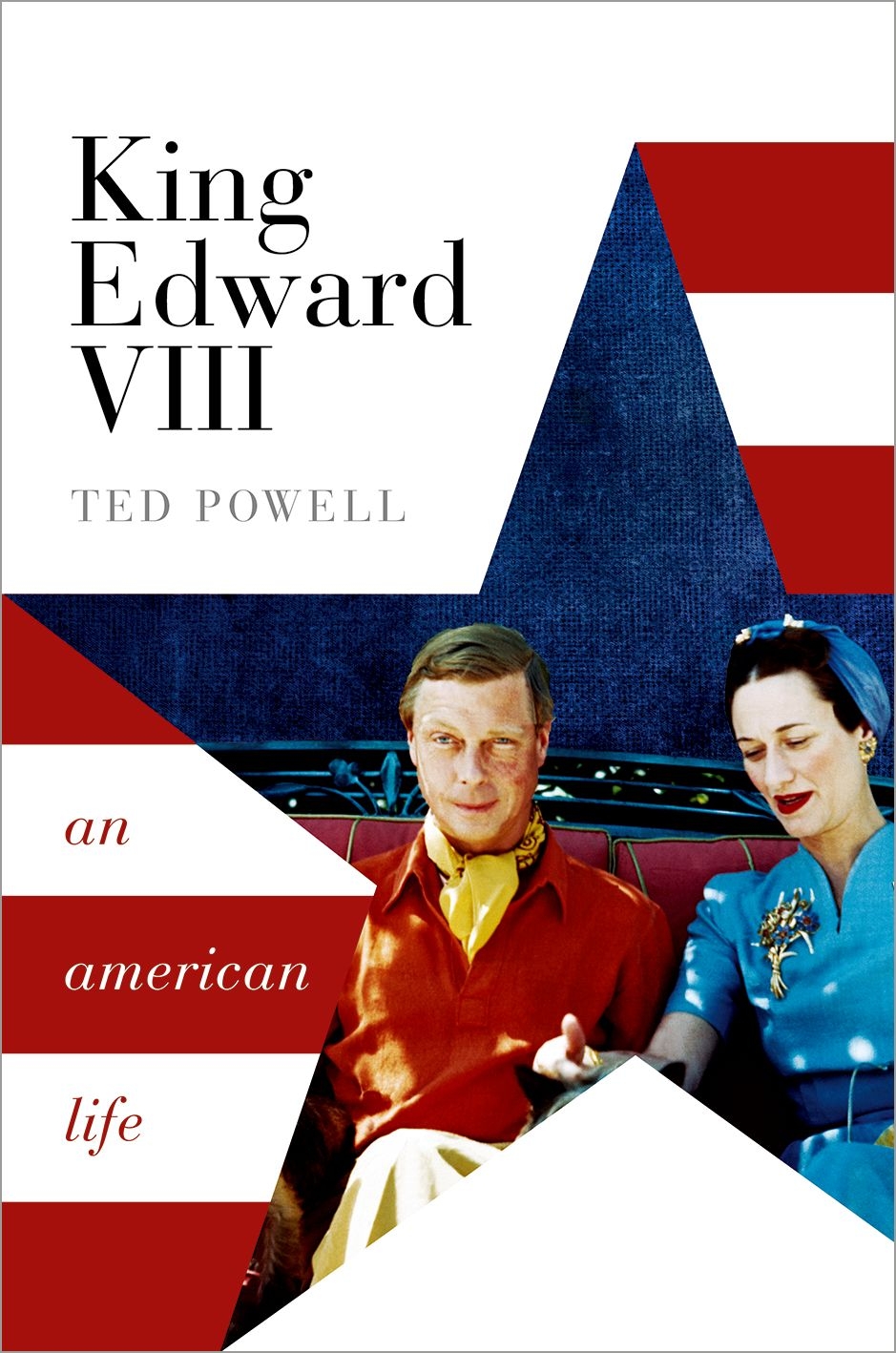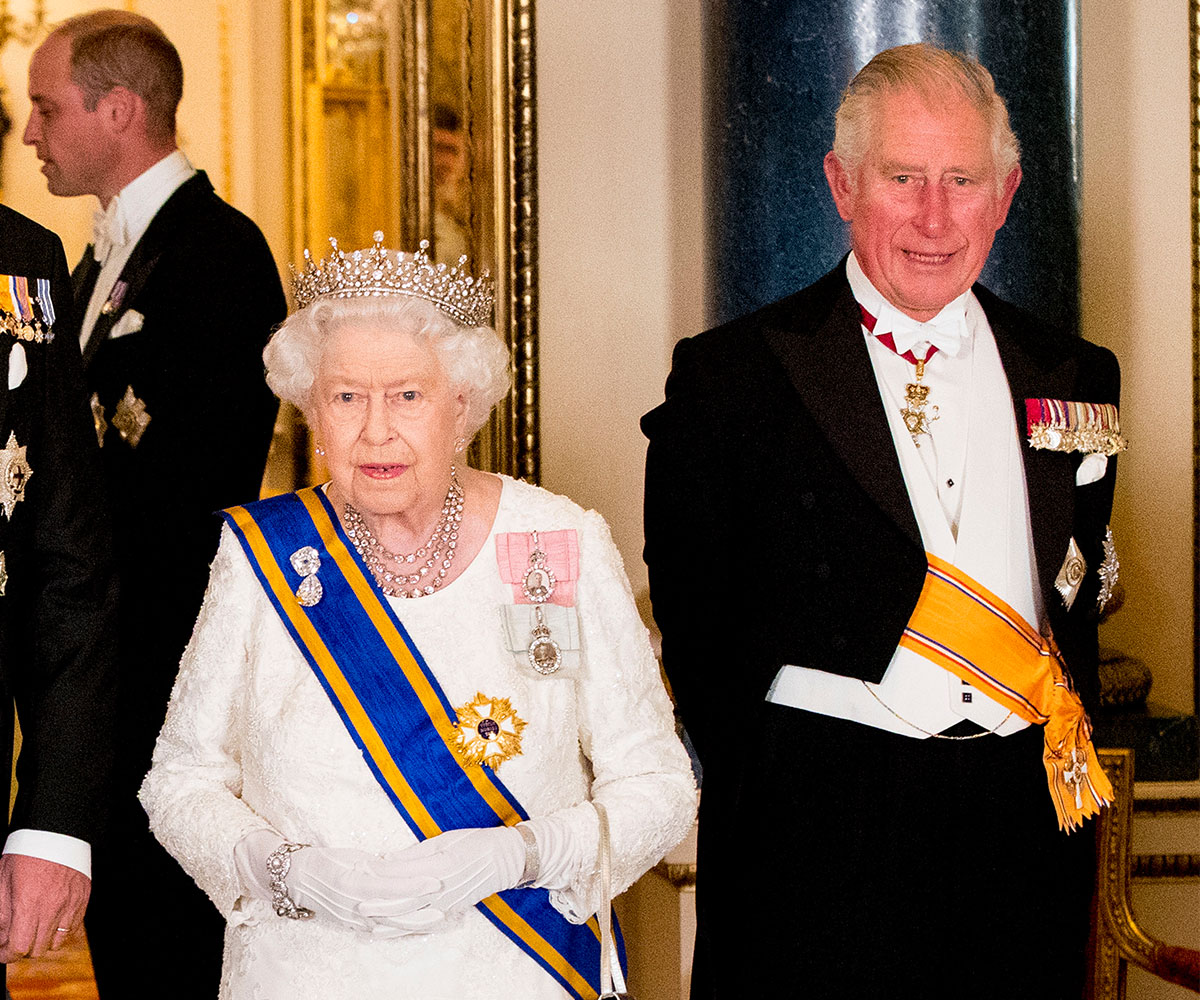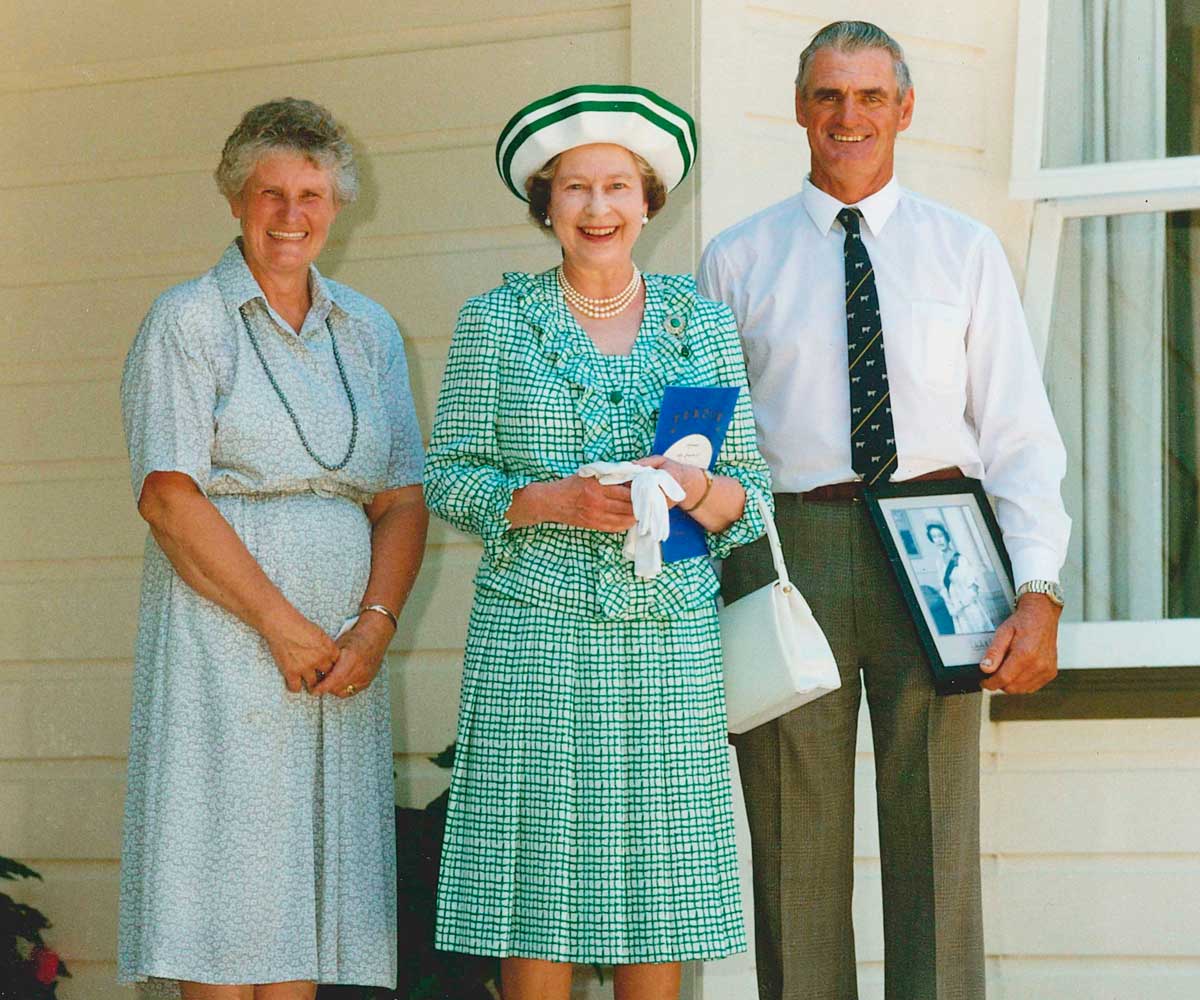December 11th marks the eighty-second anniversary of the Abdication of King Edward VIII in 1936.
Queen Elizabeth was then ten years old, her sister Margaret just six. Edward, who was known to the two princesses as ‘Uncle David’ had ascended the throne only eleven months earlier on the death of his father King George V.
His determination to marry his lover Wallis Simpson, a forty year-old American divorcée, forced him to give up his Crown and go into exile, leaving his brother Bertie, who became King George VI, to pick up the pieces.
The reality of the situation only hit Princess Elizabeth when she saw an envelope addressed to ‘Her Majesty the Queen’. “That’s Mummy now isn’t it?”, she said. Margaret asked her if that meant she would herself be Queen one day, and Elizabeth replied, “Yes I suppose it does”.
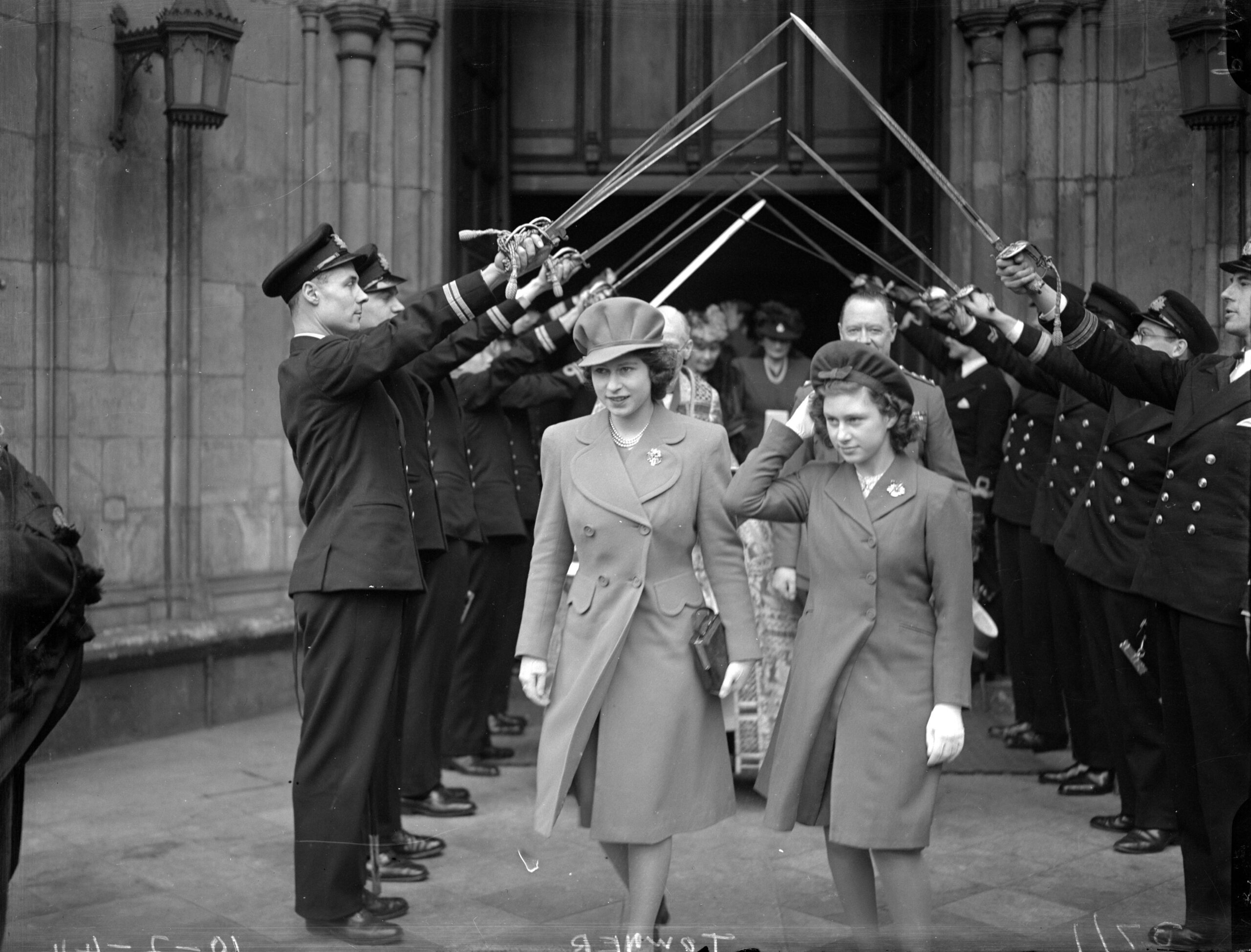
Queen Elizabeth II (then Princess Elizabeth) with her sister Princess Margaret in 1944. Image: Getty Images.
In many respects, the history of the British monarchy in the second half of the twentieth century was an extended commentary on the events of 1936.
The Abdication of Edward VIII had profound consequences for the future of the House of Windsor. When Edward came to the throne, he promised a decisive break with the cautious traditionalism of his father George V. He consciously sought to carry on the informal, democratic approach to his royal duties which he had developed as Prince of Wales.
His formative experiences had taken place during and after the first World War, when so many European monarchies had collapsed. He recognised that the House of Windsor’s position could not be taken for granted: it had to be positively sold to each generation. He grasped intuitively that the British monarchy was a product, a ‘brand’ which needed to be refreshed and marketed, and soon discovered that he himself was a natural salesman.
Over the years the American Press christened him “the Prince of Sales”, in recognition of his abilities. As part of the rebranding process, he believed that the Crown needed to modernise if it was to survive as a relevant institution – rather than a historical relic – in twentieth-century Britain.
He was keen to dispense with Victorian pageantry, to forge closer ties with ordinary people, and to engage actively with the great issues of the day.
The Abdication led the royal family to the opposite conclusion. Modernisation was dangerous, pulling the monarchy in unpredictable directions, and upsetting its time-honoured place in British society.
King George VI, as his name suggests, ruled in conscious imitation of his father George V, and through him followed the royal traditions laid down a century before by Queen Victoria and Prince Albert: embodying British national identity and tradition, living a model family life within the pattern of Christian marriage, and avoiding political controversy.
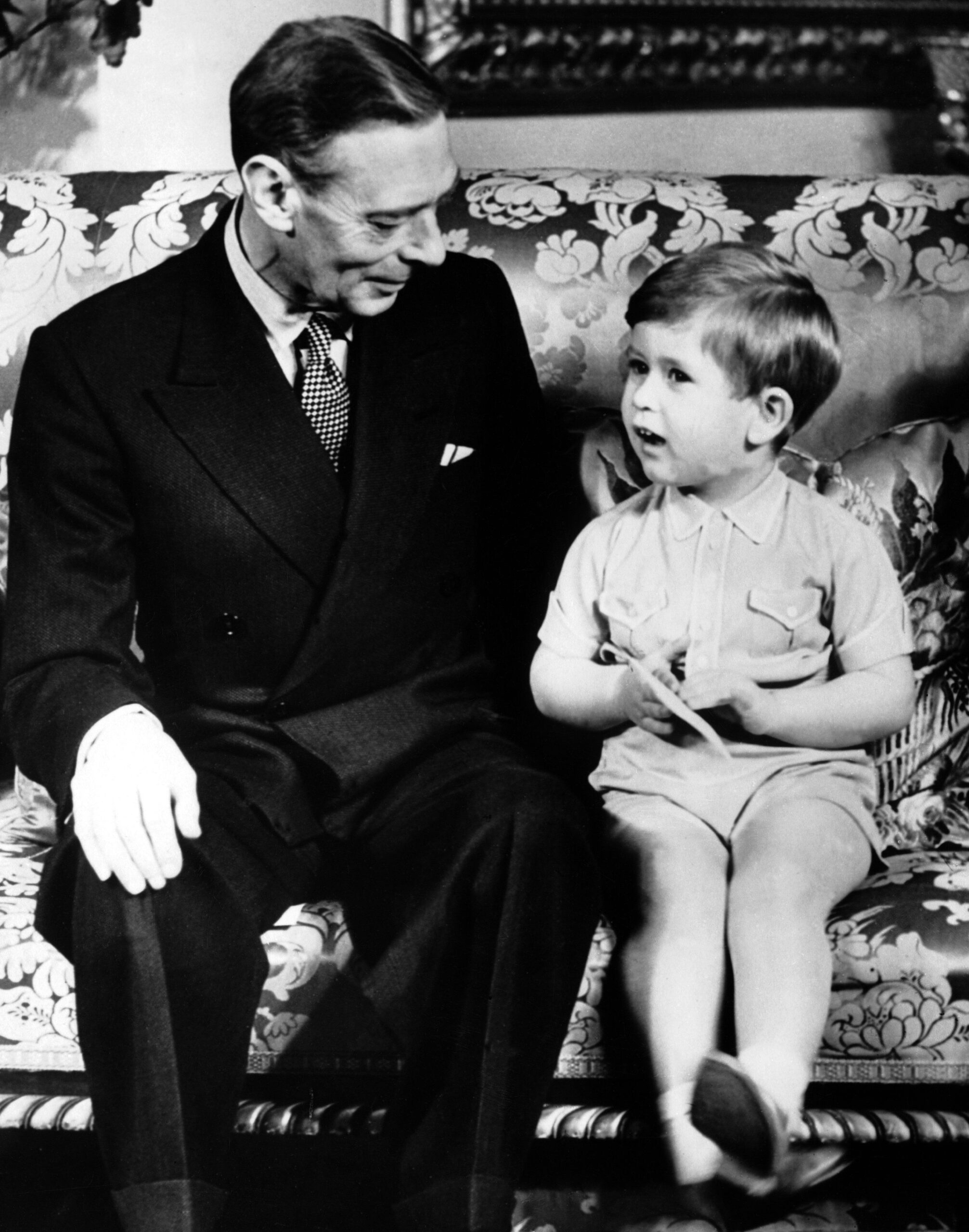
King George VI with grandson Prince Charles in 1951.
In many respects the history of the British monarchy in the second half of the twentieth century was an extended commentary on the events of 1936.
In April 1947, on her twenty-first birthday, the future Queen Elizabeth II gave a radio broadcast from South Africa, where she was touring with the rest of the royal family.
It was an explicitly anti-abdication speech, a repudiation of the idea that the burden of monarchy could be laid aside.
“I declare before you all that my whole life, whether it be long or short, shall be devoted to your service and the service of our great imperial family to which we all belong”.
The Queen’s declaration was almost like a religious vow, a lifelong dedication to the service of her country.
In 1953, in a further echo of the Abdication controversy, Queen Elizabeth refused her consent to the marriage of her sister Princess Margaret to a royal equerry, Peter Townsend, who had divorced his first wife. Townsend was posted overseas, and Margaret subsequently gave up her hopes of marrying him.
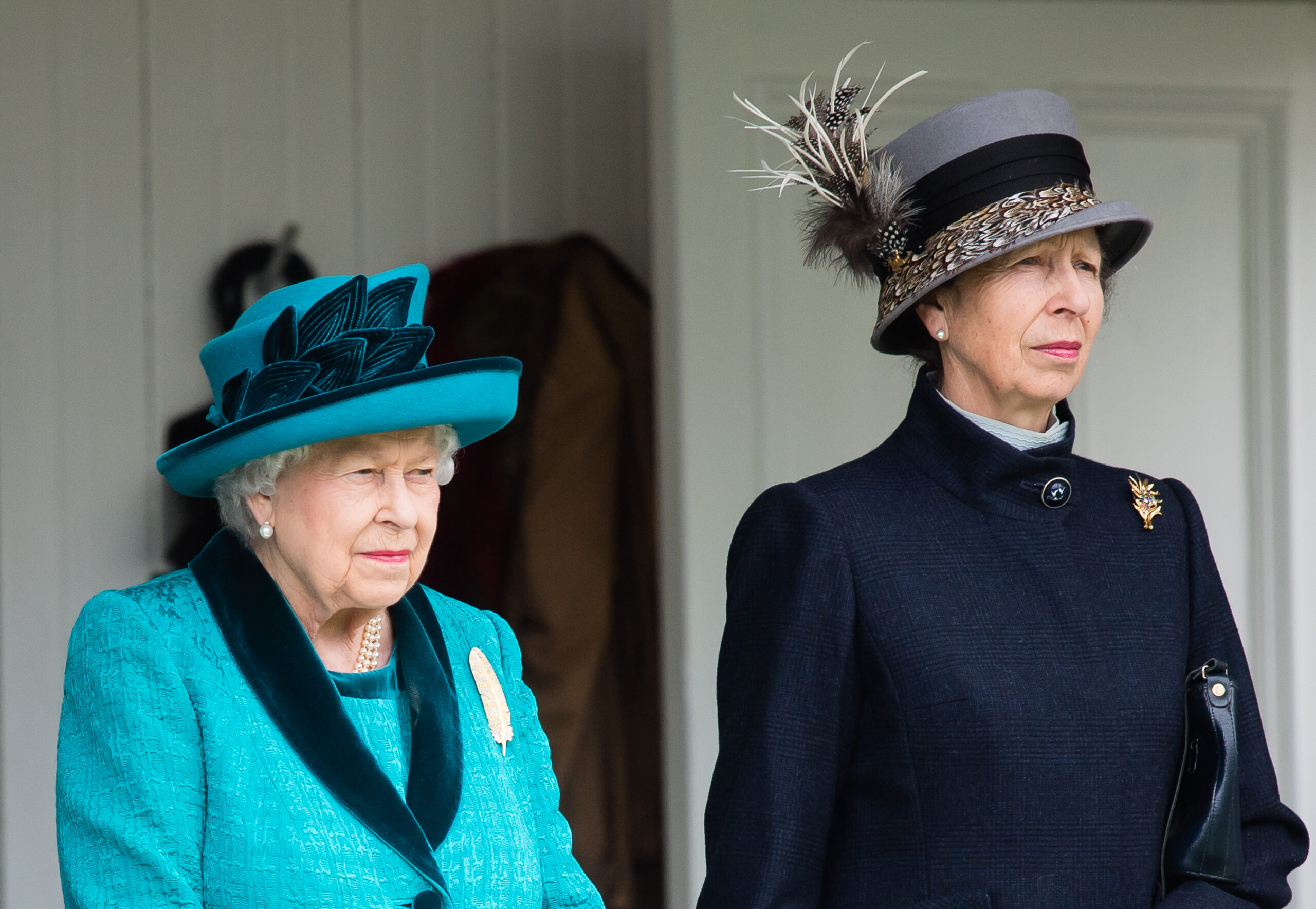
Now, more than seventy years on, at the age of 92 the Queen still holds true to the vow she made on her 21st birthday.
Prince Philip retired from royal duties last year at the age of 96, and there are suggestions Queen Elizabeth may retire when she reaches 95.
However my belief is that even if she ceases to carry out public engagements, she will carry on discharging the constitutional duties of the Sovereign, such as assenting to Acts of Parliament for as long as she is physically and mentally able.
Ted Powell’s new book King Edward VIII: An American Life, published by Oxford University Press, is out now in hardback and ebook.
